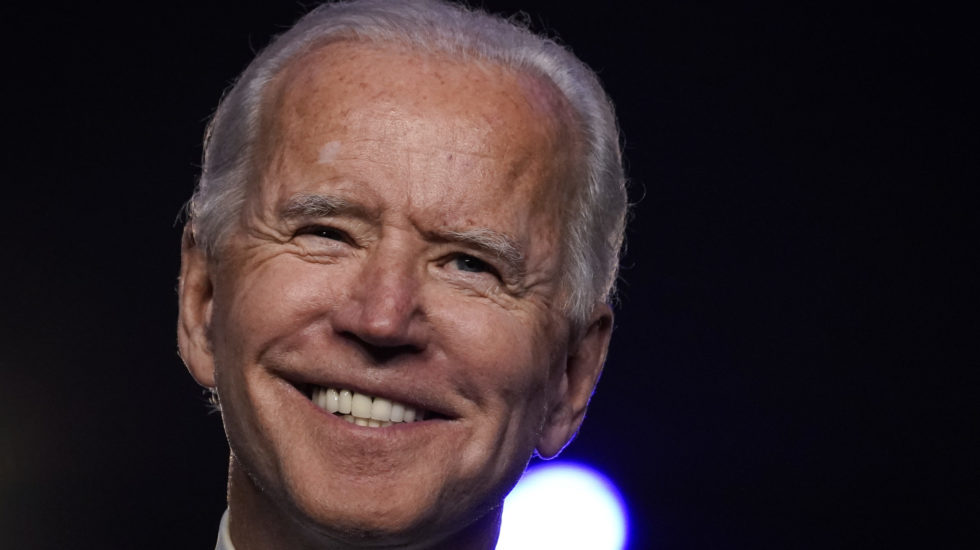President Biden demonstrated his straight-talk brand of politics Tuesday night, promoting his plan for health and economic recovery in a televised Town Hall from Milwaukee.
Within the first moments of the event, the president promised that his administration will have in hand 600 million doses of Covid-19 vaccines, enough to vaccinate “every American who wants one,” by the end of July.
Biden made it clear he was tired of lingering talk — and headlines — about his disgraced predecessor.
“The last four years, all the news has been about Trump,” he said. “I want to make sure the next four years, the news is all about the American people.”
Inevitably, questions about the pandemic and its effects on individuals and society as a whole came up frequently.
“It may be that a certain vaccination for a certain strain may reduce from 95% to a lower percentage of certainty that it will keep you from getting it,” Biden said. “But it will still be effective.”
“So the clear notion is, if you’re eligible, if it’s available, get the vaccine. Get the vaccine.”
Some on Twitter noted the dramatic change in tone in the town hall setting, as compared with that of presidential appearances over the past four years.
It was Biden’s first official, working trip outside Washington since talking office nearly a month earlier — a gap that left him “eager to seize the national spotlight” after the turmoil surrounding Donald Trump’s second impeachment trial, reported CNN, which carried the broadcast.
Anderson Cooper was the moderator, passing along questions from people elsewhere in the country.
“Biden defended his call for the federal minimum wage to be raised to $15 an hour from its current $7.25, arguing that if the change is enacted ‘gradually’ over a number of years, it will have less of a negative impact on businesses than if it were done in ‘one fell swoop,’” reported the Washington Post.
“Biden steered clear of a prediction of when American life would return to normal amid the coronavirus pandemic but said he was hopeful that ‘by next Christmas, I think we’ll be in a very different circumstance,’” the Post said.
Asked when the nation would see full-week, in-class learning for children in kindergarten through the 8th grade, Biden said, “We’ll be close to that at the end of the first 100 days.” That would be approximately the end of April. But, the Associated Press reported, he added that reopening will take longer for high schools “due to a higher risk of contagion among older students.”
Biden’s speech pattern was characteristically halting at times, but never incoherent; he clearly knew what he was talking about. He rarely managed to deliver an answer within what was supposed to be a 2-minute limit, but his passion for policy, for problem-solving, was vivid.
The event gave Biden an opportunity to do what he does at his political best: look the American people in the eye and say what he thinks. He spoke to the small, socially distanced audience in the hall, but just as frequently he faced the camera and addressed the nation.
At one point, a mother in the audience brought her young daughter forward, explaining that the girl was worried about children being infected by the coronavirus. Biden spoke directly to the child, calling her “honey,” and offering reassurance.
As expected, Biden used the opportunity to promote his relief plan, which includes a new round of $1,400 stimulus checks and provide hundreds of billions of dollars for schools, city and state governments, coronavirus testing and Covid-19 vaccine manufacture and distribution.
Biden’s proposal would also help millions of jobless Americans by increasing emergency unemployment benefits from $300 to $400 a week and extending them into the fall.
It’s an expensive proposition, to say the least: $1.9 trillion dollars.
“I committed to pass — This is the first time in my career … that there’s a consensus from economists left, right and center, that we can’t spend too much,” Biden said. “We can come back – we can come roaring back.”
“Bigger is better now,” he added.
